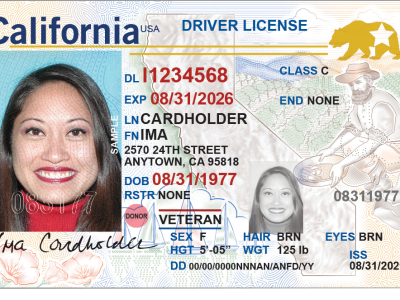From rail passes to reviewing insurance policies, here is how to make your money go further
Rising utility costs and increases in council tax and stamp duty are among the latest changes to impact household budgets. Donald Trump’s sweeping tariffs on imported goods could also affect consumer prices in the UK.
Yet 41 per cent of British holidaymakers planned to spend more on travel this year, according to research conducted for travel insurer Aviva.
Among those surveyed, Britons planned to increase their holiday budget by an average of £3,000 compared to 2024.
Travellers might expect that investment to deliver a better experience. But, with the backdrop of high living costs, every penny will count.
We asked travel experts for their tried and tested ways to get more for your money.
Review your travel insurance policy
If you are buying an annual policy which covers the whole of Europe or worldwide, it is worth checking how much you will save by only including the places you plan to visit.
“Destinations like the USA, Canada, Mexico, and the Caribbean, where medical costs are particularly high, tend to have more expensive policies,” says Garry Nelson, head of corporate affairs at AllClear Travel Insurance.
That is true closer to home, too. The price of a Europe-wide insurance policy could be pushed up by the inclusion of certain countries. For example, travel insurance in Spain tends to be more expensive than in Portugal.
“It may be more cost-effective to get an annual policy that excludes more expensive areas and then buy a separate single trip policy if you do travel to those areas,” adds Mr Nelson.
According to the FCDO, a broken leg in Spain could lead to a £25,000-plus hospital bill.
Repatriation costs in the event of a medical emergency have gone up – from Spain, it now averages £45,136 – an 18 per cent increase in just two years.
Note that a free UK Global Health Insurance Card (GHIC) lets you get necessary state healthcare in the European Economic Area (EEA) and some other countries on the same basis as a resident of that country.
Nelson says: “Spain can have higher travel insurance costs than some other European countries as, while the GHIC card gives access to public healthcare, in practice, many clinics and hospitals especially in tourist areas are private (so don’t accept GHIC).
“Insurance providers often end up covering the cost of private treatment, which can be expensive. The GHIC also does not cover if the patient must be repatriated back to the UK from Spain which is also expensive.
“On the islands, particularly the Canaries and Balearics, the situation can be even more complex. In more serious medical cases, patients sometimes need to be transferred from the island to the mainland for specialist care. That transfer by air ambulance or medical escort can be extremely costly.”

Find the cheapest booking window
Analysis from online travel agent Opodo suggests that the most cost-effective time to book long-haul breaks is 61 to 90 days before departure.
According to the research, prices for travel between continents average £784 when booked within this window, compared to £818 when booked 16-30 days in advance.
For trips within Europe, the travel agent suggests booking 31-60 days in advance. It says the average price of a ticket to Spain is £166 when booked within this period compared to an average of £33 more when booked just 0-15 days ahead of departure.
Avoid the tourist hotspots
So-called destination “dupes” that offer a similar landscape or experience to popular destinations are often cheaper and less busy than their better-known counterparts, says Laura Lindsay from Skyscanner, the search engine for flights, hotels and car hire.
She suggests Reggio Calabria in southern Italy as an alternative to Tenerife.
Return flights to Tenerife in August cost a minimum of £238 return, compared to Reggio Calabria, where a return costs just £99 that month.

Swap airports or travel days
“Leisure travellers most commonly book weekend flights, while many business travellers fly on Monday. So, the midweek days have lower demand and are often the best days to travel for lower prices,” says Nicky Kelvin, UK head of the travel website The Points Guy.
“Don’t just stick to the main airport for your destination. Check nearby airports as well, as you might find cheaper flights.”
Find the cheapest booking window
If you book accommodation through a platform such as booking.com or hotels.com, it makes sense to choose one and stick to it for future trips, as it could save you money.
“Make sure you’re logged in and signed up to the loyalty scheme – they are often free,” says Chelsea Dickenson, who runs the website Cheap Holiday Expert.
“You may be rewarded with discounts and perks such as free breakfasts or upgrades.”
On booking.com, regular users can become “geniuses” and get instant discounts, while on hotels.com, you are offered a free night’s stay after you have booked ten through the platform.
Think about travel costs year-round
If you are planning a family or first-time ski holiday, try shopping for clothing or equipment as the season ends, suggests Ms Dickenson. Sales and second-hand shopping sites could offer up bargains.
“I’ve been wearing my ski jacket and salopettes from Vinted for three years, and they only cost me £25,” she says.
Try rail passes
If you are planning to take a holiday in the UK using trains, a rail ranger or rover ticket can prove to be a good money-saving option, says rail expert Daniel Puddicombe.
These tickets, available through rail operators, offer unlimited travel within a specified area or period. Ranger tickets are valid for one day, while rover tickets are valid for a set number of days within a certain timeframe, such as four days of travel over eight days.
“I often find it is cheaper to buy a ranger than an off-peak return ticket for my destination, plus it gives the added flexibility,” says Puddicombe.
You can get rail and rover tickets from station ticket offices.
Unlimited travel passes on the Continent include Germany’s €58 (£49) per month Deutschlandticket.
“It allows you to roam the country if you pick and choose your routes carefully, and, best of all, it is valid on a number of Germany’s famed narrow-gauge steam railways,” says Mr Puddicombe.










